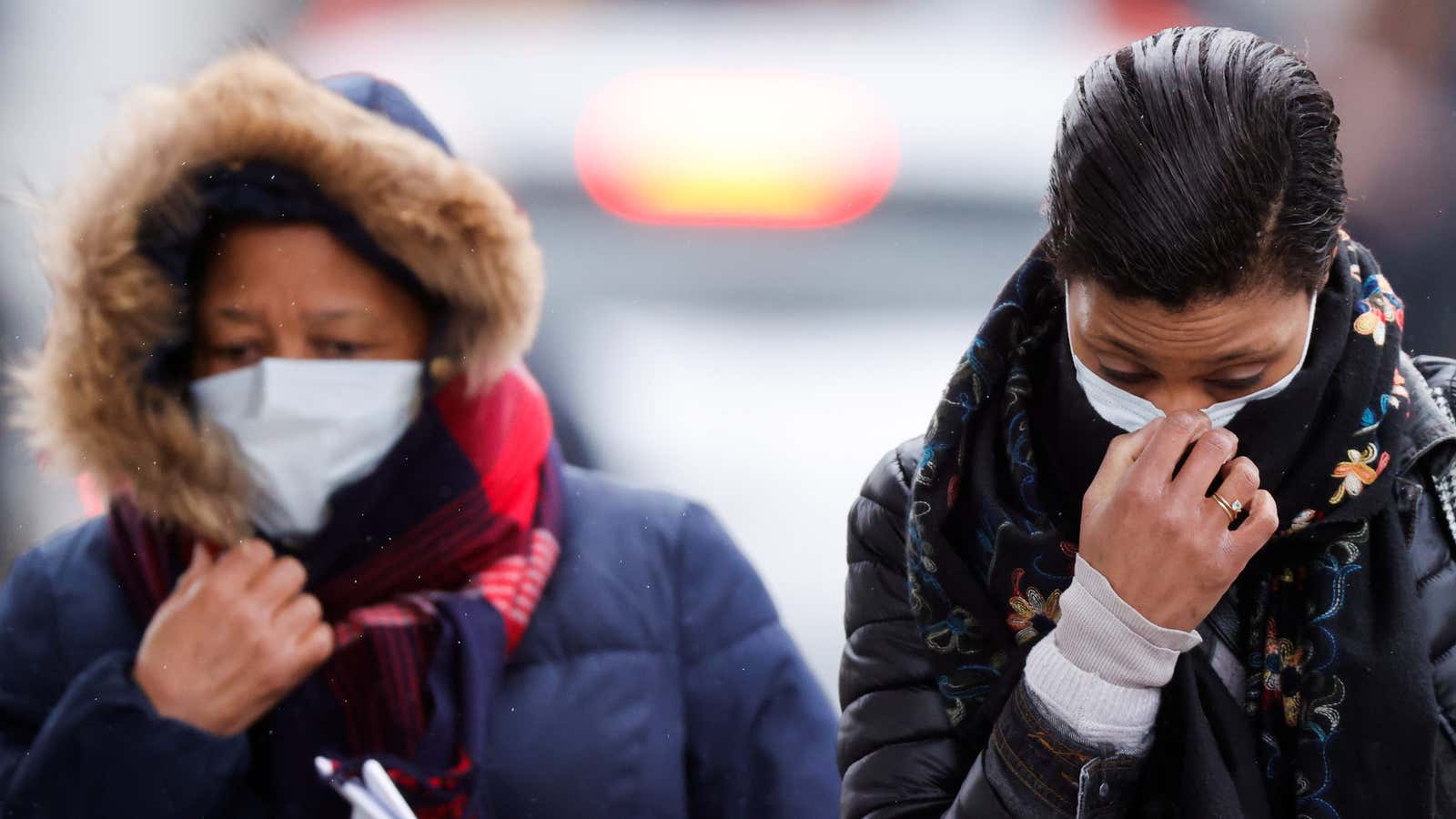That Covid-19, the disease caused by the novel coronavirus, will spread widely in the United States is now considered a matter of when, not if. There are 60 known cases of the disease in the US, including at least one person with no known foreign travel or contact with another confirmed case, a sign that the virus may be spreading at the community level.
“We are asking the American public to prepare for the expectation that this might be bad,” Nancy Messonnier, director of immunization and respiratory diseases at the Centers for Disease Control and Prevention (CDC), warned at a conference on Feb. 25.
US health chief Alex Azar has asked Congress for $2.5 billion in funding to help monitor and detect the virus, support state and local governments, develop vaccines and treatments, and stock up on protective equipment like surgical masks. But that money would do little to address a more fundamental problem in the US: the high cost of going to the doctor.
At least one American has already incurred hefty bills for seeking treatment for what he feared might be a coronavirus infection. When he developed flu-like symptoms after returning to Miami from a work trip to China, Osmel Martinez Azcue took himself to Jackson Memorial Hospital for testing. He asked for a flu test instead of the CT scan hospital staff wanted to conduct.
The flu test came back positive. Two weeks later, Azcue received an insurance claim for $3,270. His portion: $1,400.
The CDC is currently advising Americans who believe they may be infected by coronavirus to contact a health care professional. US health officials are tracking and attempting to contain the spread of the virus, with help from test results ordered by those providers. All of that becomes tougher if people who suspect they’ve contracted the disease put off going to the doctor for fear of high bills.
“One of the disadvantages the US has in trying to tackle Covid-19 is that many people avoid going to see a health care provider because they are worried about the cost,” said Gavin Yamey, professor of global health and public policy at Duke University. “You absolutely want people in this situation to be going to see a health provider.”
In 2017, the average US resident paid $1,122 out of pocket (pdf, p. 3) for health care expenses, well above the average of countries in the Organization for Economic Co-operation and Development. Among high-income countries, only the Swiss spent more. Despite those high out-of-pocket costs, Americans also visited the doctor far less: four times on average in 2017, compared to the OECD average of 6.8 visits per year (same pdf, p. 8).
Why might Americans go to the doctor less? Health care costs! A 2019 report from Gallup and West Health found that 26% of US adults said they had deferred treatment in the past 12 months due to cost of care, and 19% deferred purchase of medicine. Two-fifths of people reported forgoing emergency care over the past year. Nearly half said they were “concerned” or “extremely concerned” that a major health event in their household could lead to bankruptcy.
Another survey the Kaiser Family Foundation and the LA Times conducted in late 2018 found that more than half of US adults with employer-sponsored health insurance said someone in their family had skipped or postponed necessary care or prescriptions in the past 12 months because of the cost.
Equally worrisome is the estimated 27.9 million uninsured and 44 million underinsured people in the US. Nonprofit health care foundation the Commonwealth Fund defines “underinsured” (pdf, p. 2) as adults whose health care deductibles equal 5% or more of their income, or whose out-of-pocket costs over the past year were 10% or more of their income (or 5% or more if they earned under 200% of the poverty line). By contrast, in the UK, which at the time of writing has 19 Covid cases, healthcare is free at the point of delivery, meaning that people tend to see a doctor when they need one.
“When you think about an epidemic or an outbreak of an illness, we are in fact less equipped to deal with that epidemic than other countries where everyone has insurance coverage that’s pretty comprehensive,” said Sara Collins, vice president at the Commonwealth Fund. “We know that people who are uninsured or underinsured are much more likely to say they didn’t get care when they were sick.”
As columnist Helaine Olen recently wrote in the Washington Post, an event like coronavirus makes a strong case for a universal health care system like Medicare-for-all. Olen argues people who think they might have the virus should be able to seek treatment without worrying about the cost—for their sake, and for the sake of everyone else.
“I think here is a situation where you can see the tremendous benefits of providing health coverage for all,” Yamey said. “Even if you’re someone who believes in private insurance, surely at this moment in time you can see the benefits to yourself of making sure that other folks who don’t have private health insurance actually have the ability to go see a provider. It’s going to protect them, but also help you. We are all in this together.”
